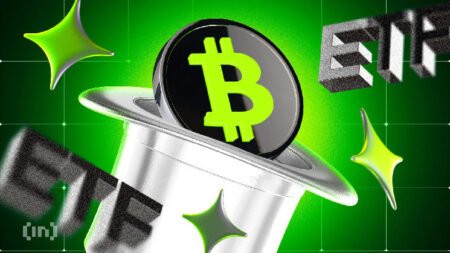The U.S. Treasury’s Fiscal Year 2024 Q4 Report recently highlighted the rapid growth of digital assets, specifically citing bitcoin as a “store-of-value.” This has ignited conversations among enthusiasts, with many on social media platforms like X buzzing over the Treasury’s comparison of bitcoin to “digital gold.” The report, crafted by the Treasury and the Office of Debt Management, emphasizes the ongoing efforts to utilize blockchain and distributed ledger technology for innovative applications and to enhance traditional financial markets’ clearing and settlement systems.
According to the report, digital assets, including cryptocurrencies like bitcoin and ethereum, as well as stablecoins, have seen significant growth. However, household and industry adoption of cryptocurrency remains limited to holding digital assets for investment purposes. The Treasury’s recognition of bitcoin as “digital gold” has sparked discussions among enthusiasts, with many interpreting this as a sign of bitcoin’s evolving role in the financial world. The report suggests that the primary use case for bitcoin is as a store of value in the decentralized finance (defi) world, with speculative interest playing a prominent role in the growth of digital tokens.
As digital assets continue to evolve, the discussion around the U.S. government’s remarks in the Treasury report points to a growing overlap between institutional systems and blockchain innovations. This signals wider acceptance and use of digital assets in traditional financial markets. The Treasury report reflects a cautious but forward-thinking approach to evaluating digital assets, hinting at a shift in how decentralized finance integrates into established markets. These changes could reshape value storage and drive new waves of financial creativity.
The comparison of bitcoin to “digital gold” by the U.S. Treasury has sparked excitement among enthusiasts, with many seeing this as a validation of bitcoin’s value proposition. Some enthusiasts have interpreted the Treasury’s remarks as a sign of capitulation, suggesting that mainstream adoption of bitcoin as a store of value is imminent. As the digital asset landscape continues to evolve, the acknowledgment of bitcoin as a store of value by a mainstream institution like the U.S. Treasury could pave the way for further acceptance and integration of digital assets in traditional financial markets.
Overall, the Treasury report’s acknowledgment of bitcoin’s role as a store of value and “digital gold” underscores the growing relevance of digital assets in the financial world. As blockchain technology and digital assets gain traction, the lines between traditional financial systems and innovative technologies are blurring. This evolving landscape presents opportunities for further integration of digital assets into traditional financial markets, potentially reshaping how value is stored and creating new avenues for financial innovation.


















